Creators, Makers, and Doers: Joe Golden
Posted on 5/23/16 by Arts & History
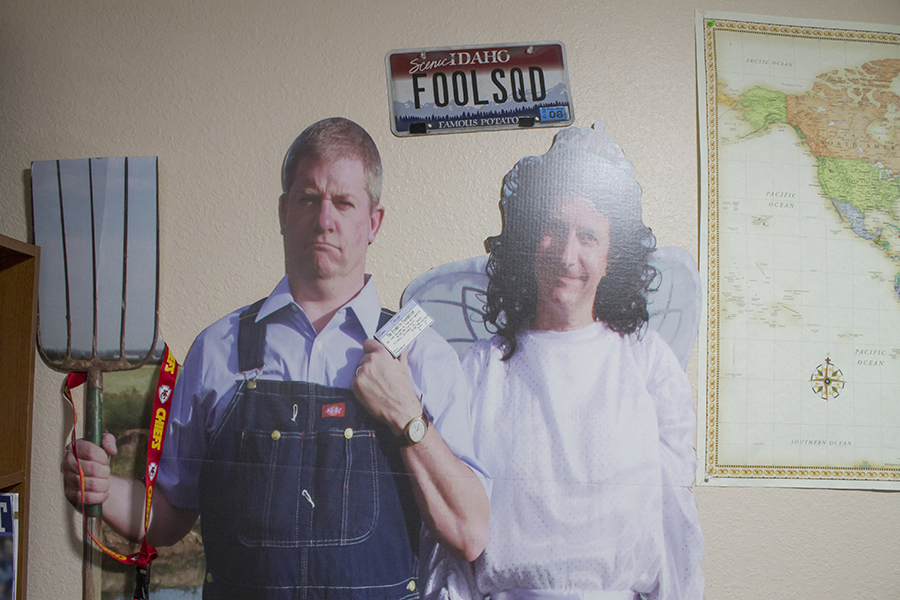
Joe Golden is an actor, comedian, and longtime fool of the Fool Squad. Storytelling, inspiring laughter, and exploring artistic freedom have provided Joe an unexpectedly prosperous career. Although now retired from the Fool Squad, Joe is still active in the community teaching at the College of Idaho and working on a grant-funded project that will land him in the shoes of many of the First Ladies of the United States.
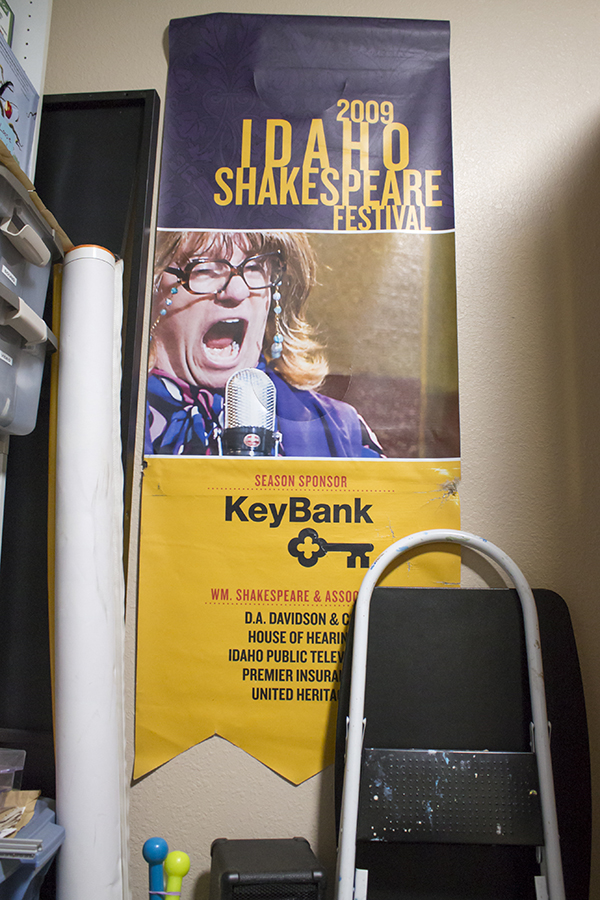
Can you tell us who you are and what your role in the community is?
My name’s Joe Golden and I came to Boise as an actor for the Idaho Shakespeare Festival. Now, I’m a theatre professor for the College of Idaho. In the community, with my friend Tom Willmorth, we formed the Fool Squad and we have been a two-man comedy team that’s done comedy writing for corporations and private parties, fundraisers, and we did the Green Shows at the Idaho Shakespeare Festival for twenty-three years. We just retired from that last year. Now, we’re still doing things creatively together as the Fool Squad but, we’re just a bit more choosey about our projects. We’re not doing as many live things, but we’re doing video projects, public service announcements. We just did one for Idaho Transportation Department, and so we have some things that we do for Idaho Power Company and little things like that.
I consider myself a Boise artist first and foremost, part of the arts community, a very thriving and surprisingly active arts community for a city this size. I came to Boise not thinking I was going to live here, but just for a job with the Shakespeare Festival and, over the years, they kept finding things for me to do and I got work year-round and then became a theatre professor and put down roots and it’s been great. It’s a wonderful place to live, breathe, and be an artist.
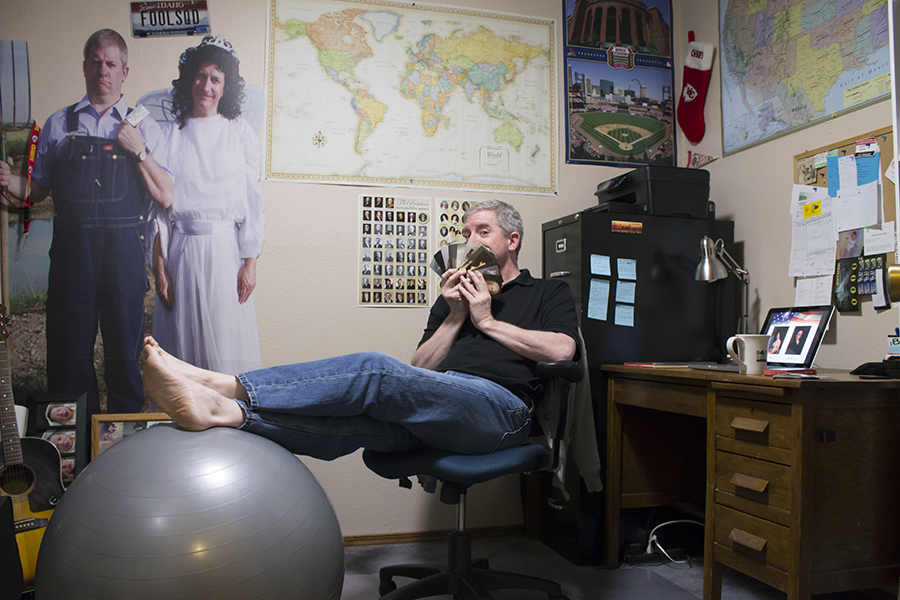
How did you get into acting, or what drew you into acting initially?
That’s a good question. I don’ t know why anyone gets into it to start with. I was always a visual artist. I loved to draw and paint in school. I always thought I was going to be a visual artist, growing up. I enjoyed it, it was very solitary, I played by myself a lot as a kid. Then I had a drama class in seventh grade and I found I really enjoyed the performing part of it in class. I’d always been a little bit of a family clown. My brother and I had kind of grown up making the rest of the family laugh at family dinners and I had this secret desire to be a comedian when I grew up.
My drama teacher was somebody I would take classes from in eighth grade through twelfth grade, and she really became a great mentor and friend and took me under her wing and saw something in me. She really helped me develop that artistry and that skill. I’m friends with her to this day. She really saw in me something and helped develop it and I just kept doing it because it was fun. I auditioned for every play and, if I wasn’t in it, I worked on it in some way, painting the set, building the set, running lights, running sound, stage managing. I just kept doing it until I figured somebody was going to tell me to stop and no one ever told me that.
So, I auditioned for a scholarship, got a scholarship, kept doing it in college. I have found other ways to make work—to make my own work, in addition to working for companies like the Idaho Shakespeare Festival or Boise Contemporary Theater, things like that.
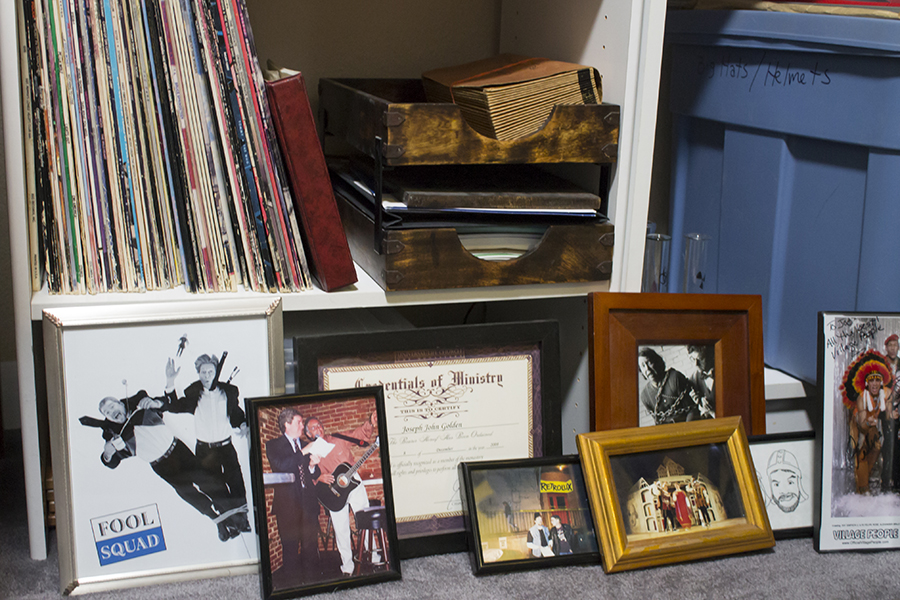
You have obviously dedicated your life to acting, but why? What is it about acting that has kept you?
It’s incredibly satisfying, I feel enriched by it. I love storytelling. There’s nothing better than hearing somebody tell a great story and transport you there as they’re telling it, whether it’s a joke, whether it’s a shaggy-dog story, or whether it’s a real-life story, I’m always bowled over by people that can tell great extended stories in that kind of oral tradition. I love being captivated. I think, as good an actor as I try to be, I’m a great audience member too.
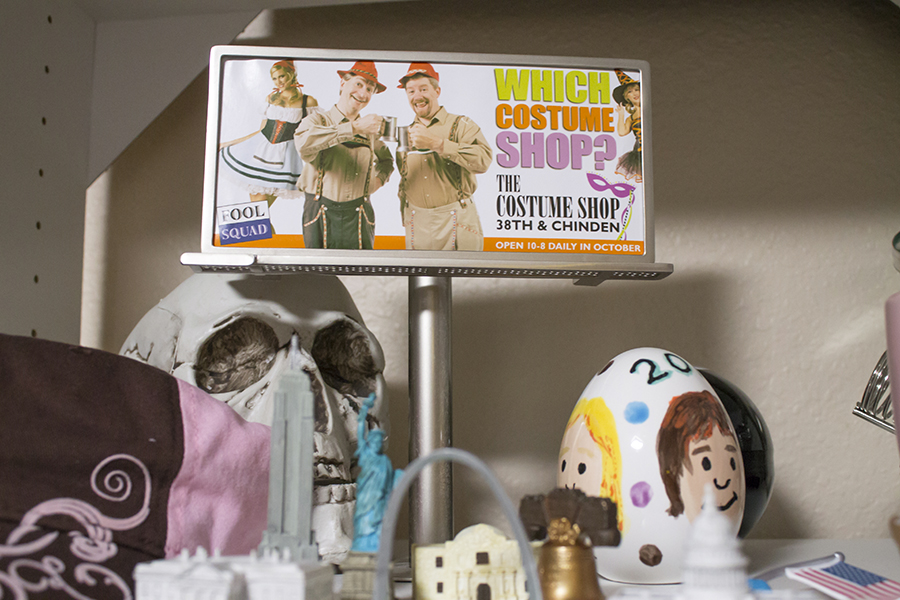
What do you see as the importance of storytelling in our culture?
It’s vital. It’s as important as the food we eat and the water we drink in our collective society. It’s the way we all learned things at one point. Before there was the written word, there was the spoken word. It’s how the masses were taught, it’s how the story of the hunt, the story of the Bible, the story of all of these things, moved our society forward. We’re just wired, I think, to appreciate and to continue this idea of storytelling. When our kids are going to bed, they want a story. They want to go to sleep with their imaginations going wild and hearing a story to send them off to sleep with. I think it’s more prevalent than many in our society would like to think. The movies we see, the television programs we watch, no matter how banal they are, are all stories of people’s lives and what they’ve overcome, what they have been challenged by. Sometimes they are defeated and sometimes they rise up and conquer after those defeats, and there’s just something grounded in how we get through our daily lives. It’s all a matter of following our story and continuing our story as we go along.

Can you talk about what you’re currently working on?
The working title is “Ladies First.” It’s going to be a solo performance where I play many First Ladies of the United States of America. I’m on sabbatical from school right now, so it’s part of my sabbatical project and it’s why I wrote the grant to be able to assemble my team.
It started out with the idea of “Well, wouldn’t that be funny? It would be funny to, you know, dress up as Eleanor Roosevelt and to dress up as Barbara Bush and Nancy Reagan and, you know, Mary Todd Lincoln and things like that.”
As I started to scratch the surface of researching the First Ladies, I found, again, great stories. Stories of women who were incredibly compelling, and had much more to do with the administrations and with helping form our country into what it is today than certainly I was ever aware of. And I was, like, “Well, really? That happened?” Or, “She did that?” Or, you know, “She wrote that in her correspondence with her husband?” Or, “This President was never married and this President had his wife die and remarried while he was President?” And, I’ve always loved history, love historical dramas, historical movies, but I had never researched this topic very much. Once I got into it, I just found it fascinating and I was, like, “Oh, this is going to be even more challenging and more intriguing and more satisfying than I had even thought it might be when I undertook it to begin with.”
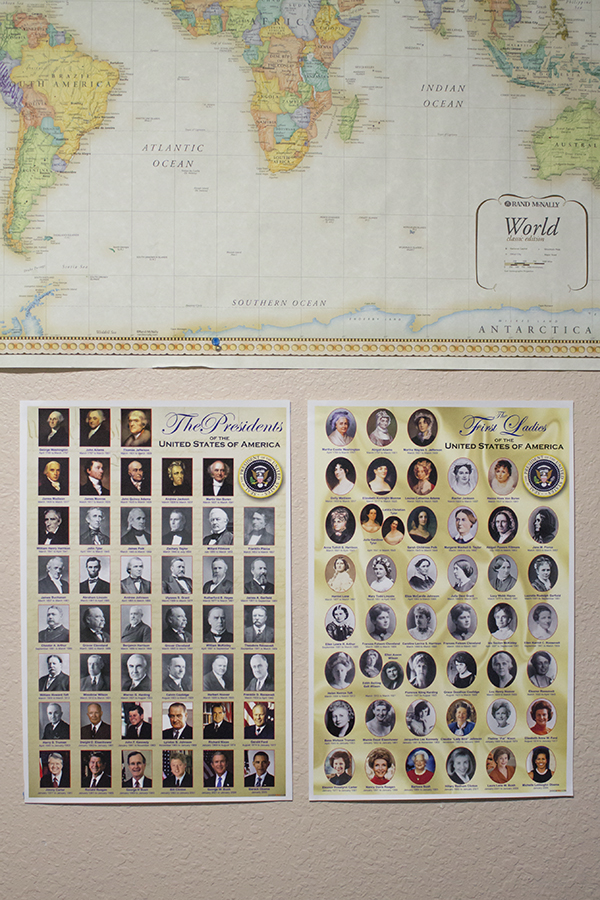
Can you describe what your creative schedule looks like?
I’m in the midst of figuring all that out. Like I was saying before, I’m a visual person as well. So, I’ve got my calendars, I’ve got my schedules, I’ve got spreadsheets. As I’m researching this, I’m finding out all the stuff I don’t know, which is vast. I’m doing a lot of research. And every time I research something, it kind of leads to something else.
I had to make my own First Ladies’ quiz, because it’s hard to read about them. I got a book about the First Ladies and I see their portraits and I can learn about what order they came in, then I ordered one about the Presidents and I said, “Well, if I’m going to learn about the First Ladies, I’ve got to know the Presidents and the administrations that they served,” and then I kept finding out about different periods of American history and I was, like, “Oh, I should research that, too.” So, I’ve got to keep a lid on this or I could all of the sudden have a new profession. I feel like I’m minoring in American history right now, which I didn’t in college. But, I wanted to kind of make my own little quiz to kind of constantly quiz myself on the First Ladies and which administration they go with and things like that.
As I was researching other First Ladies’ artifacts and things like that, one of the first things I came across is the Smithsonian Institute, which has a display of the gowns of the First Ladies, the inaugural gowns the First Ladies wore, which is great. But they also have china patterns and they have all these other things. I thought, “Hmm, well, that’s interesting, but is that how we’re seeing our First Ladies: Oh, what dresses did they wear?” or “Oh, what china pattern? What flowers did this First Lady choose for her china?” I think that’s the impression that a lot of people get is that they were just in charge of parties, the china, the drapes and decorating the White House and stuff like that. And I thought, “There’s got to be something more.” So, there’s a couple of other museums and historical sites that I’m going to go visit in my research. And I plan to go to those.
It’s got to be funny, so it’s going to have comedy in it because that’s who I am, but I don’t want it to be irreverent or dismissal of the First Ladies as well. It will be a mixture. There’ll be surprises, there’ll be layers, because some of the First Ladies had quite tragic lives. Some of them died before they ever got to the White House. Some of them watched their children die in front of them and never recovered. There’s a lot of facets of these stories that I’m looking very forward to tell. And planning out my calendar to figure out how I’m going to do that.
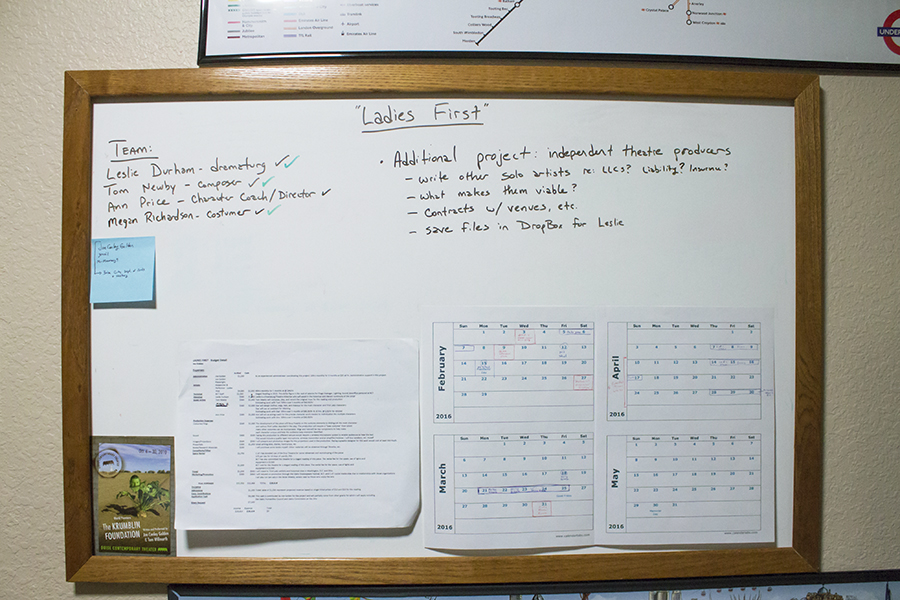
Do you recognize any missing resources for what you do here in Boise?
It’s precarious, given any administration and the turnover, all of a sudden, what’s valued by one is devalued by another and all of a sudden the NEA has its budget slashed which then trickles down to all the state agencies also having to slash their budgets and things like that. I worry that our politicians who say, “Well, you know, you have corporate entities out there, you put a bank’s name or a corporation’s name on your sign and they can underwrite some things. Private citizens underwrite things through Kickstarter and other public funding, crowd-funding sources, and things like that. That’s all well and good, but, a lot of times some of those things come with strings attached which can hamper artistic freedom and expression. If a certain company or corporation that had sponsored you for years and years all of a sudden goes, “Ooh, we didn’t like that show you did. You poked fun at organizations like us and we take exception to that. We’re pulling your funding.” Or, “We would like you not to do shows like that anymore.” That’s really difficult to deal with. When artists have to fear a company pulling your funding because you rubbed them the wrong way, then that puts the arts in a very precarious position. Whereas, something like the NEA, Idaho Humanities Council, and Idaho Commission on the Arts, those kinds of sources of funding are the most vital, because those are the people that understand the arts, understand the importance of expression, of cultural enrichment, and of artistry.
And artistry isn’t always pretty and it’s not always palatable by all. Sometimes it’s challenging and sometimes it reveals ugly sides of human nature and society, and we need that, too. It can’t all be candy canes and cotton candy. We have to have the sour sometimes, too, to remind us that we’re human and remind us that the whole human experience is out there to experience. I could go on and on about censorship and all that stuff, but those arts organizations are vital to a community and are unsung heroes, because, other than the arts community or people who might take notice on the poster that it says, you know, “Supported by grants from this–,” I don’t know how many people really understand what that means and what this community would be like if we didn’t have it.
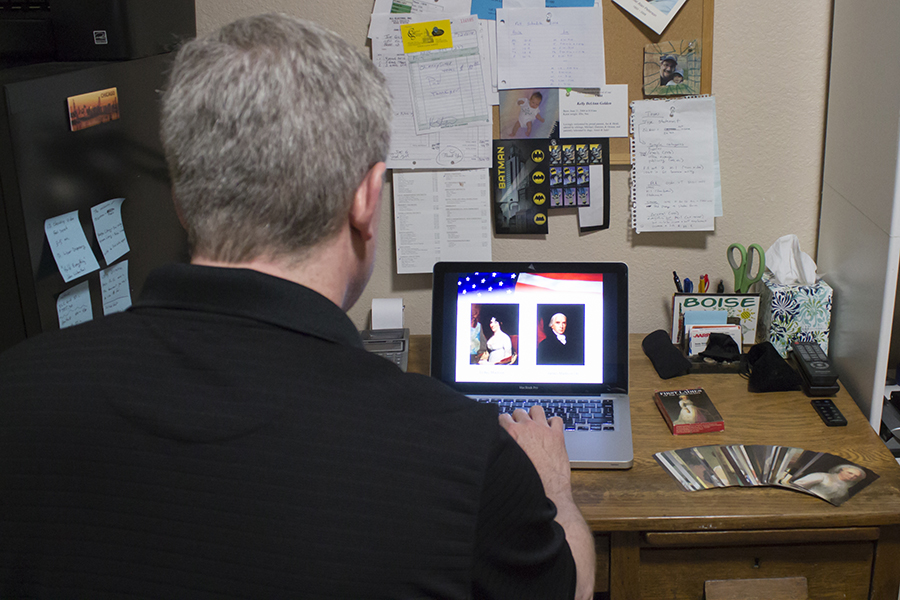
Finally, do you have any advice or inspiring words for others out there?
Something I tell my students and I think artists in general, the idea of artistry is challenging and it can be very frightening. Artists really need to try to conquer that fear and be somewhat fearless. Fearless of making fools of themselves. I have found that by doing that, I’ve made a career of being a fool. Daring to be stupid, not censoring ideas that you think might be bad ideas. Maybe they’re just ideas that need some more development, ideas that need to go back in the incubator for a little bit, need to grow and form a bit, because sometimes the stupidest ideas have turned out to be quite brilliant in some of the things we have undertaken. And, please yourself, too. It’s not about patronizing an audience, giving them what you think they might want, giving them what you think they should have or what they might like. Please yourself and your own artistic sense, your artistic soul, and see if other people like it. Because that’s who you are. It’s got to come from you. Honor your own artistic sensibilities and make that art as much for yourself—not in an art-in-a-closet kind of way, because you do want to share it with people around you, but, make it true to who you are as an artist.
Creators, Makers, & Doers highlights the lives and work of Boise artists and creative individuals. Selected profiles focus on individuals whose work has been supported by the Boise City Dept. of Arts & History.